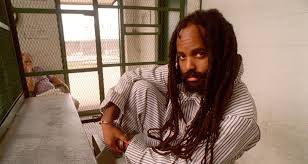HOBBY LOBBY: Son of Citizens United
[col. writ. 7/2/14] © ’14 Mumia Abu-Jamal
The Supreme Court’s recent Hobby Lobby decision, which protected a closely held corporation’s right of religious practice, is a direct result of the 2010 Citizens United Supreme Court decision.
It was an affirmation of a corporation’s First Amendment rights, which rests upon the rather curious notion that corporations are persons, and thereby entitled to constitutional protections.
Every lawyer living knows that the idea that corporations are people is a legal fiction. It is a trick of the law, used to reach a certain result.
And there’s the rub.
For corporations aren’t people. They are creatures of statute. They are aggregations of collective wealth and power.
Indeed, the actual case used to support corporate personhood (known as Santa Clara County v. Southern Pacific Railroad), never really said what courts now say it said!
So, a legal fiction piled on a legal fiction after another legal fictions makes for today’s absurd results.
For while a corporation’s owners may have religious beliefs, how can a corporation?
Does a corporation have a soul?
Corporations are concerned with profits. Period.
But for years, judges have been raised to the bench who show more fealty to legal persona (corporations), than to living persons, (the poor, the imprisoned, the workers, the oppressed).
Guess which kind of ‘person’ got constitutional protections – and which did not?
This case is based on the legal principle of WHIPs: Wealth Has It’s Privileges.
–© ’14 maj

